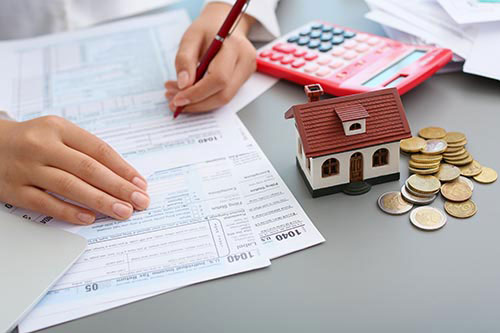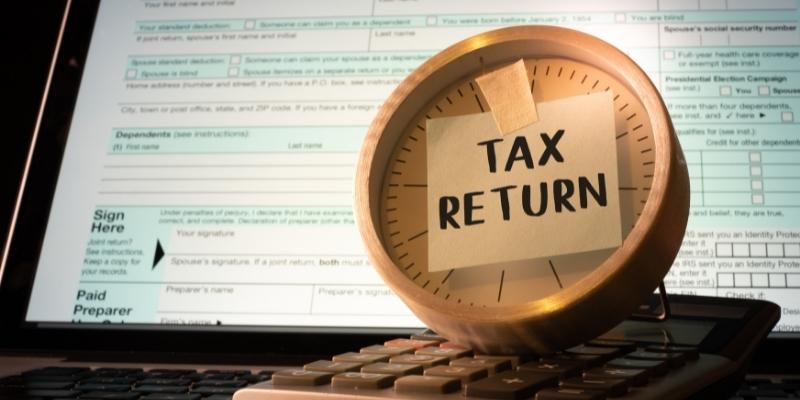Most homeowners would likely say they pay too much in property taxes if you question them about it. Homeowners pay local property taxes. They're ad valorem, meaning they're based on property worth. Property tax money is often used to support neighborhood initiatives and services, including local public recreation, police enforcement, and education. Despite benefiting all inhabitants, property taxes may be costly for homeowners. They tend to increase slowly over time. Even after paying off your mortgage, tax obligations continue to arrive. Some states have lower property taxes than others, but taxes are always needed to pay for city services. Property taxes are a fact of life as long as you own a house. However, there are a few basic strategies you may use to reduce your property tax burden.
Follow The Assessor
It's usually a good idea to let an assessor inside your house. Assessors tend to make the most pessimistic conclusions when they don't view the interior of a property firsthand. Appliances and fixtures are assumed to be newer and better in your house. The best course of action is to open the door and welcome them in. Take note of any defects, damage, or repairs that need to be made while you're at it. It is possible that they will lower the value of your home. They may never notice such things if you don't bring them out to them. Based on the positive aspects of your home, they'll come up with an evaluation.
Following the assessor and conversing with them might also encourage them to move the examination along faster. Assessors have the potential to overlook new fittings or other value-enhancing aspects of your home. Trying to keep up with them causes you to inadvertently hurry them. In addition, this might help you prepare for an appeal.
Check For Breaks

The property tax regulations in many jurisdictions are complex. Your property tax payment may be eligible for standard deductions. This is a part of your home's worth that you do not have to pay taxes on. People with impairments, elderly citizens, and military personnel may be eligible for additional municipal tax breaks. Breaks could also be offered for renewable energy initiatives, energy-saving fixtures, and features, as well as other environmentally friendly upgrades. It's fairly uncommon for these pauses to go unnoticed since they differ from location to region. If you want to learn more, you'll probably have to do some digging.
Limit Your Curb Appeal
Landscaping may not be necessary if you don't plan on selling your home soon. Just like everyone else, assessors are swayed by initial impressions and looks. A gorgeous front yard befits a luxury home. A prospective buyer will appreciate that, but an assessor will be put off by it. You shouldn't do anything that harms the value of your property, such as mowing the lawn or planting trees.
Neighbors and others may see your tasteless exhibition as an infringement of zoning regulations; therefore, you should avoid these approaches. Try delaying exterior renovations. Opening windows just on the side of the facade might tamper with the assessor's perception. You may wait until after the evaluation to reseal driveways and clean vinyl siding. Small techniques like these might bring down the value of your home.
Appeal Your Assessment
Your tax bill may be appealed if you're not content with the assessor's judgment. You'll need to conduct a lot of study in order to achieve this. Step one is to locate your property card there at the courthouse in your area. Your property card has information about your home, such as how big it is, how many bathrooms it has, and so on. The easiest method to begin your appeal is to find flaws in this card. You may also find out how rapidly the assessor thinks your property is increasing in value. This will help you to see how rapidly your property's value is rising in comparison to the rest of the neighborhood's properties.

It's also a good idea to look at nearby deals that are similar to yours. Find recently sold homes in your neighborhood that are the same size as yours to get an idea of what your house is worth. In many locations, property records may be accessed online, and in other cases, they can be seen in person. You may use this information to support your allegation that the assessor overvalued your property. It is most possible that in order to initiate your appeal, you will be required to go to the county courthouse and have a conversation with a records clerk there. They can point you in the right direction. Prepare your evidence and argument in advance. An informal appeal to the assessor's office is likely to be the initial stage in the process. If it doesn't work, you have a variety of different options for appeal.
Conclusion
If you want a beautiful house but don't want to spend too much on taxes, it might be a challenge. Even if you don't want to move into a slum, there are still simple things you may do to lower your property tax bill. Avoid making any changes to your home just before it is scheduled for an assessment. Neighbors who pay fewer taxes than you may be eligible for a tax break if they own the same kind of house as you. It's as simple as asking for it.




